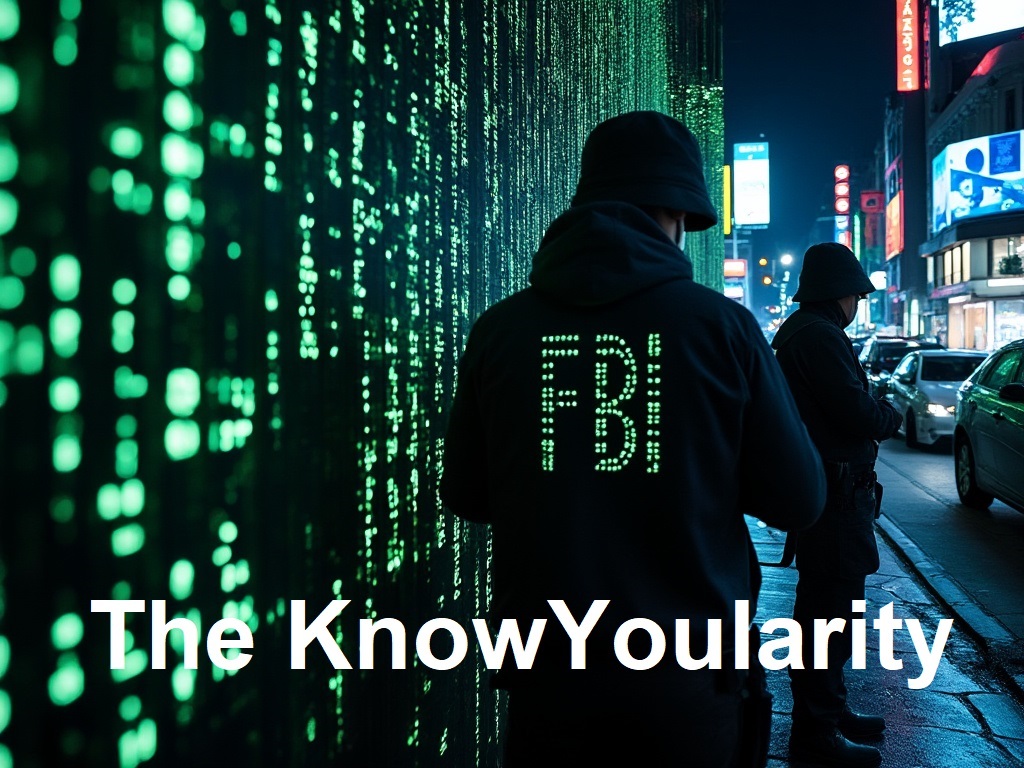You can follow my @X account which has been blocked atm. You can also become a Patreon
The BRICS are a group of countries that banded together to attempt to counter the robbery perpetrated by the USA because the USA can print dollars. If food is scarce or oil is expensive all countries used to have to pay in Dollars, which they have a limited amount of, yet the USA could always print more and buy whatever they needed. Also when the USA wanted it could print new dollars and cause inflation, which meant that ‘dollar poor’ countries could not buy a lot of commodities that they needed.
The idea is to create a gold backed currency. Its not sure what that means. It can mean unfractional gold equivalent, meaning if you hold a unit of the currency, you can go to a bank and get physical gold in exchange. It can also be fractional gold (like Bullion market certificates. The London Bullion market is fractional 1 to 100 for example, banks will always defraud you). Either way this plan is doomed to failure. Its not that it doesn’t represent an attractive alternative as a store of value, its that it can’t do what the dollar does atm.
The original ‘Gold Standard’ for international currencies worked such that you could always buy gold in return for dollars. All countries had gold reserves and the amount of currency was clearly limited and needed to be balanced across the countries that had hard currencies (that mattered in terms of trade and wealth creation). The gold standard was inherited from the labor intensive economy that preceded the coal and oil and gas based fossil economy. It is easy to understand why you can have a gold in a labor intensive economy. The number of workers is quite constant, meaning the population, just like the amount of gold and productivity per person. So if five man can make a hundred pizzas each evening you need say one dollar per pizza in gold (say in 1930) in circulation to pay each for the pizzas. That dollar needs to pay for all the labor and materials that went into the making of the pizza. In a population stabile system this means the gold backed dollar price of a pizza will move until it settles where this works. Then it stays there because the system has a fixed nr of workers, farmland, but also pizza places (the population doesn’t change!). A gold standard works here.
Now in real life 1930 the US population was already growing rapidly. What was the reason? Fossil based fertilizer, mechanization, expansion of farming. Something strange was happening as well, some people got really really rich : Oil companies. How was that possible? Well, before the money you pay for anything would end up with a worker, a human being that did the work. After the introduction of diesel and gasoline engines, those fuels did a lot of the work, and money ended up with the person you bought that fuel from. The oil companies got massively rich because of the gold standard and the fact the economy was not designed to deal with the expansion in productivity and work fossil fuel based mechanization afforded. Everyone knows the name Rockefeller and his company ‘Standard Oil’. He made his shareholders very rich (kept only 35% of profits in the company) because of the amount of oil he produced and the work it did was indeed extemely valuable (making $21,321,800,000 of 2023 dollars in 22 years of operation). Funny we don’t even think that’s a big number anymore, but back then it was insane.
Rockefeller showed the gold standard was incompatible with having a fossile energy based economy. It was incompatible with having a ‘trade balance’ with countries that used less or no fossil energy (who are now called poor or undeveloped). Two people fixed that. First Nixon went off the gold standard, then later Larry Summers killed caring about the debt, both national and international. These two actions caused the later 20th century boom of the US economy and the current unease with dollar supremacy in the world.
So what happened? Nixon said the Fed (which is just a group of US banks pretending to be another bank) could now print dollars and hand them out to people. Those people could go to the global oil markets which where priced in USD and buy all the oil/gas they needed. This oil/gas (fossil fuels) could then be used to power machines, make more machines, transport machines, do with the machines what they where for (build, farm, go to war) and thus the US dollar became the fuel source and favored reserve currency in any countries. Several things happened, the oil crisis (people in the oil rich countries wanted a bigger cut as they saw what was happening) and the establishment of fixed and then floating exchange rates and the ‘Special Drawing Rights‘ which is a basket of currencies that can be used to settle international debts, made up out of the five major currencies (Yen, Dollar, Euro, Yuan, Pound).
All the above happened because people realized there was a lot of oil gas and coal, people could live wealthy and in peace using it. The same happened in Europe with the establishment of the European Coal and Steel Community in 1951. ‘No need for war, just make sure you don’t fight over coal and steel’ was the idea. The monuments of that deal are still found all over Europe, huge extremely dirty often derelict coal/steel mills. They where a foundation of cooperation and that cooperation still continues.
But back to the USD, this had now become the ‘Petrodollar’ and as such it supplied the life blood to every corner of the world. I was in Cambodja recently and there you can pay with local Riel, which has demonimations going to less than a Eurocent, or USD. Elsewhere the same thing. Africa, middle America, all poor countries climb up by mechanizing and to mechanize you need fuels and fuels are (where). mostly for sale in USD. I believe trust in the USD is still strong and I believe it will remain so.
Larry Summers and his team then pushed the US presidents to just take the oil by printing USD. This happened under Bush and Clinton and Bush and Obama and Trump. Finally those that where stuck believing the US was on a gold standard realized it was on an oil standard and the fact oil was sold in dollars meant he US had the treasure chest of the world. Other countries could make stuff if you gave them dollars for it, they would buy the oil in dollars and keep some for themselves. China became an industrialized country because of this power of the USD. Meanwhile everyone was still told the budget needs to be balanced blah blah blah (except by Larry Summers). What needed to happen though was the US needed to dominate the oil producing countries and produce oil itself!
Iran tried to move to payment in gold for their oil (2012) but also way in the beginning (when its oil was taken by British Petroleum, formarly the ‘Anglo-Persian Oil Company’) it of course accumulated a lot of gold and silver. This didn’t work out well for Iran. Saddam Hussein same thing, he was hung for it. All this because in the US people knew a simple thing “If we control oil wells or can buy oil in USD, we keep the power of the USD, if we don’t we will lose it!”. Strong persistent leadership is often based on very simple ideas, in general it is ”Serve banks and fossil and you will do well” in politics. It means with any question you only have to ask yourself “what would banks and fossil say” and give that answer. But I digress.
According to this tweet/X message the Petrodollar agreement made by Nixon has come to an end. Interesting. Its called the ‘Nixon Shock‘.
But back to the BRICS which added China and Saudi Arabia recently. They are peoples that want to get control of their own wealth and resources for their own population and security, not be ransacked by the US using USD or weapons afforded by the unfair control over the fossil energy supply and unfair dependency of many manufacturing countries on the USD. I claim the following : A gold based currency will not work. Where will the gold be mined and by whom? Who will now be the emitter of this new BRICS currency (most likely China who has a vested interest in Russia’s implosion under Putin)? So the Yuan will be the new gold backed currency but its main purpose in trade is to secure fossil energy to replace the goods you buy? And Saudi Arabia will participate and sell its oil for gold? But then the gold runs out? Also the amount of money will be limited by the amount of gold? This was all tried and didn’t work before. Clearly they have not thought things through at all!
This is the problem of the BRICs, its that in a mechanized economy, the most attractive currency is the one that makes most engines and motors run, and in the case of oil and gas these are even raw materials for plastics and ferilizers. Fossil is a complete solution to humans existential challenge if it wasn’t for the CO2 emissions. So the BRICS have to agree to pool their fossil resources, then have one bank emit the central BRICS currency, then allow it to be used in their economies. If China says it wants to be the leader it has to get Saudi Arabia to agree, Russia to agree. Guess what? This won’t be easy. Saudi Arabia could be the bank, the issuer. Then everyting China produces is always owned by Saudi Arabia, unless China supplies the fossil energy.
An injustice that is hard to settle is best left undiscussed and unmentioned. For years Holland provided natural gas to Italy at a discount. Why? Guess it was just a deal made by people concerned with the peace and harmony and the plight of italians. Why extract a lot of money from Italy for gas, Holland has been a very rich country for most of the 20th century. Its not an ‘injustice’ really, but when looked at by desperate or greedy people it sure seems to be. Those people don’t make the world work though. The key of wealth creation is cooperation, not competition or greed (so redundant desire to own). You can contrast on one side ‘economic cooperation’ and on the other ‘war’ if you want an extreme version if this wisdom.
It seems that if the BRICS want to launch their own currency, they have a challenge that I don’t know it can meet at the moment. Nigeria is also a big oil producer, it contemplates membership. It will also ‘pay’ the most if it does not control this currency. Will it be the Niara (currently at 0,00061 Euro). Nigeria is one of those countries that could seriously go to war with its fossil capital.
What would work? I think a new Dollar deal and of course the Roboeconomy, meaning rapid removal of fossil dependency of any country around the world. That is the problem people try to solve after all, to own their own productive capacity, not be dependend or be vulnerable to dollar based raids of their property and fruits of their labor. The BRICS currency should be renewable solar, wind, geothermal capacity (call it ‘Part One’) build in the BRICS countries and sold in a currency emitted for that purpose, local and depending on the capacity of those energy sources, say the Joulecurrency.org.
However, this does not match or answer the frustrations that drive the BRICS movement, it is run by people who crave power. For those the choice is either endlessly bicker over who gets to decide what the currency is and how much to be emitted, which means decades of war and conflict or tension all over a currency with deminishing value and with another one the Dollar still being a more stabile alternative (the more BRICS go their own way the more stabile the remaining USD will be). It is wiser to once more pool all the fossil fuels under the USD, to go to the FED banks and negotiate a distribution of USD fossil fuel prices (‘Part Two‘), which has been the case until late 20th century (oil was more expensive in Asia). This is the same process as allocating currency to renewable energy sources, so ‘Part one’, which should also happen.
So in short, the BRICS get a Joule currency for renewables and put major effort in distributing renewables across their territories and create a valuation agency that will emit the Joule currency (distribute it possibly as a basic income to the local population), and at the same time enter negotiations with the US about its dollar emission policies, where for example the FED prints money for all territories to the proportion of production or need for fossil energy. The local currencies can remain to support the Bioeconomy. In a way a ‘Global Coal and Steel Community’ meant to balance US fossil consumption with that of the world in a more equitable and fair way. This should please both the BRICS, the USA and most importantly the BANKS. This should include fossil energy reserved to build renewable energy source factories and battery factories, in short an agreed effort to transition to the Roboeconomy.
This way the BRICS country members don’t have to sit at their meeting tables wondering what the hell they should do, listing to poor labor intensive countries wanting a gold standard, knowing this doesn’t work for them etc. etc. This is my solution, I’m a Roboeconomist. If you like this post you can thank me at frits@rincker.nl or send me some money at Paypal info@climatebabes.com 










